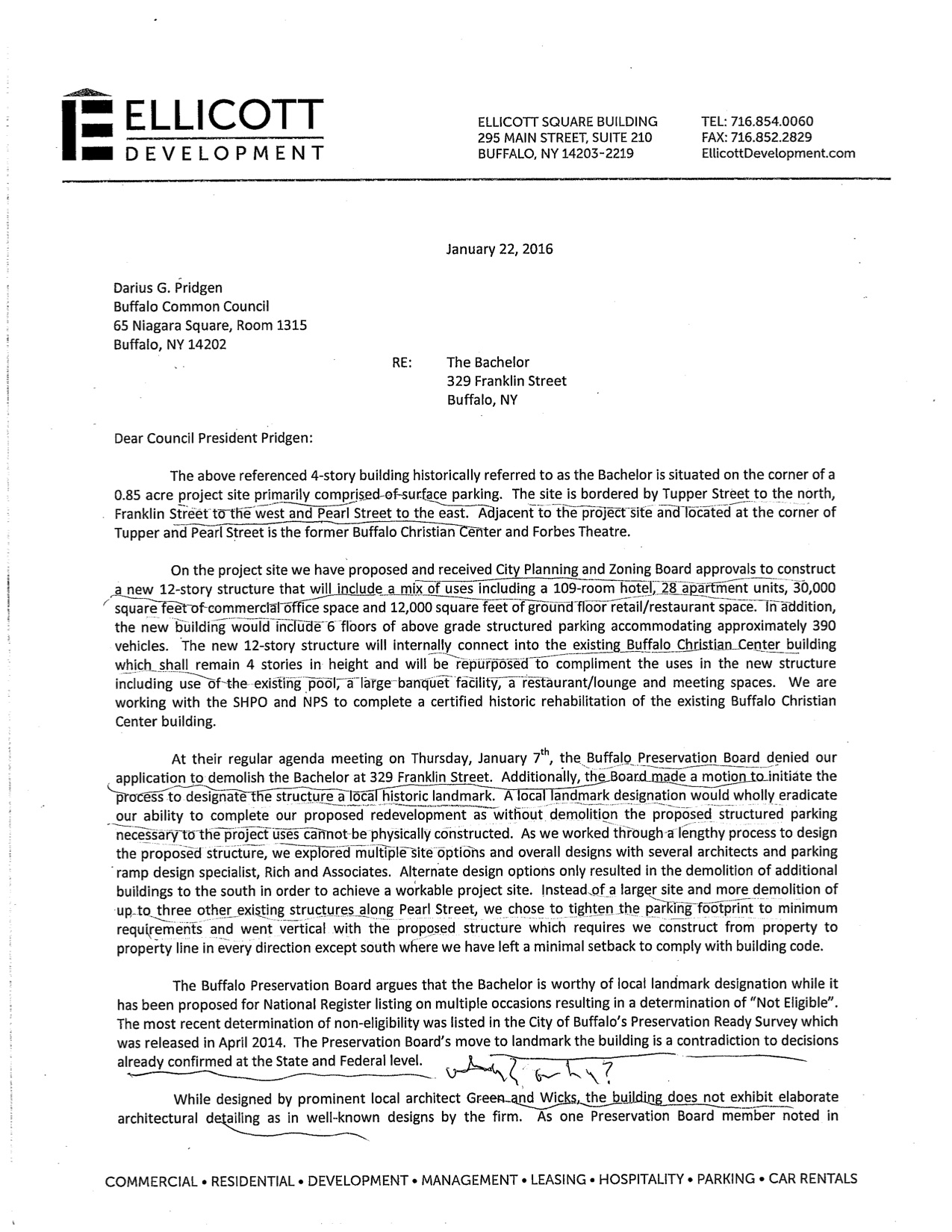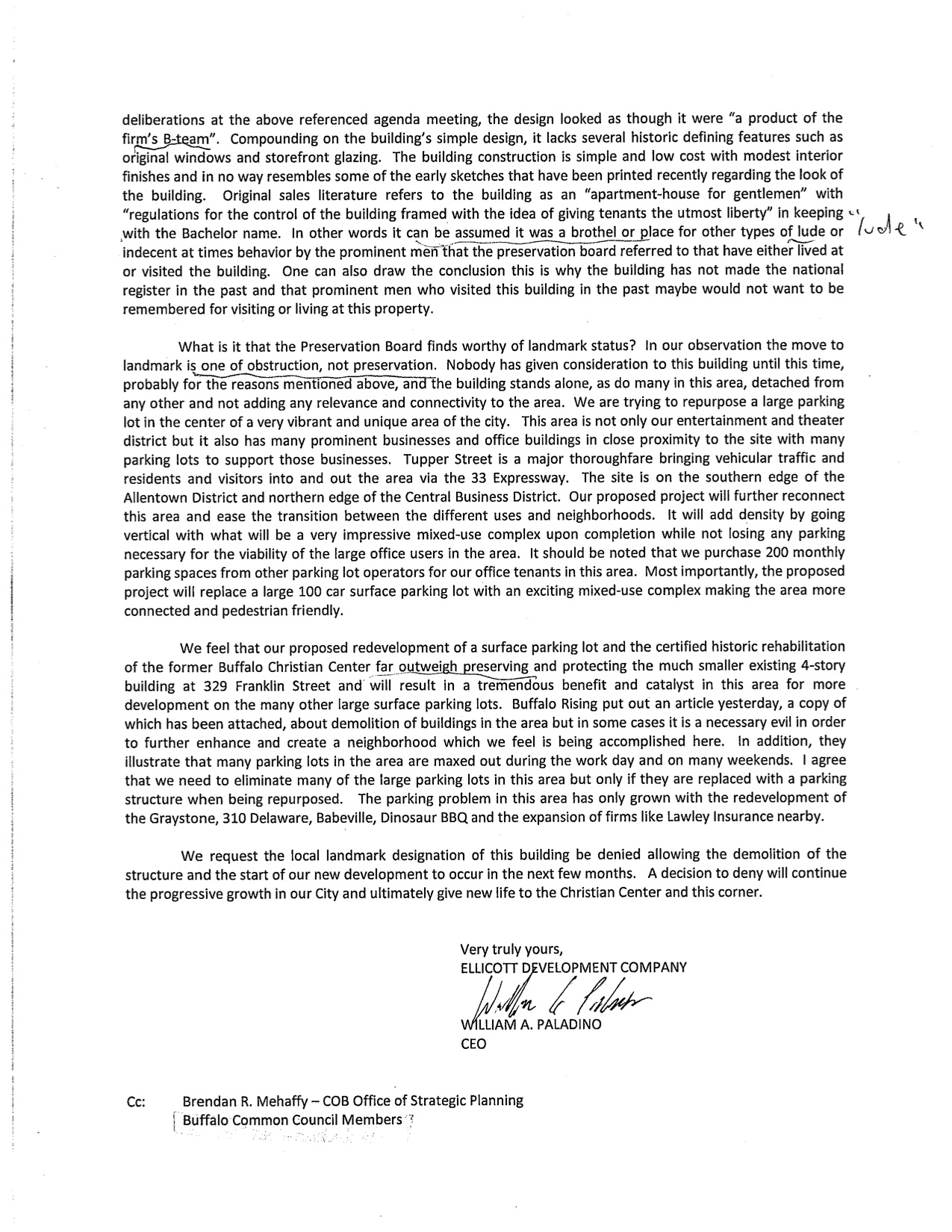Last last month, Billy Paladino, CEO of Ellicott Development, sent a letter to Buffalo Common Council President Darius Pridgen, urging Pridgen to vote against conferring local landmark status to the apartment building at 329 Franklin Street, known as the Bachelor. Ellicott Development wants to demolish the structure to make way for a parking ramp that will serve a proposed 12-story, multi-use development anchored by a hotel, with apartments and commercial space folded in.
However, the Buffalo Preservation Board denied Ellicott’s application for a demolition on January 7 and has initiated the landmarking process for the building, designed by the renowned firm of Green & Wicks and built in 1886. Both Billy Paladino and his sometimes intemperate father, Carl, have argued strenuously against landmark status, threatening to abandon the entire project if it is granted to the Bachelor: They insist that the company must raze the Bachelor or the entire project becomes unfeasible.
The younger Paladino reiterates that argument in his letter to Pridgen, then offers this additional rationale for not landmarking the Bachelor:
Original sales literature refers to the building as “an apartment-house for gentlemen” with “regulations for the control of the building framed with the idea of giving tenants the utmost liberty” in keeping with the Bachelor name. In other words, it can be assumed it was a brothel or place for other types of lude [sic] or indecent at times [sic] behavior by the prominent men that the preservation board referred to that have either lived at or visited the building. One can also draw the conclusion this is why the building has not made the national register in the past and that prominent men who visited this building in the past maybe would not want to be remembered for visiting or living at this property.
What?
This is pure nutball: The Paladinos assume that an apartment complex designed for and marketed to single professional men must have been a house of prostitution? That an agreement between “prominent men” with sexual secrets to protect has prevented the Bachelor’s historic nature from being recognized publicly?
In fact, the Bachelor was marketed as an alternative to boardinghouses, also single-sex, which put restrictions on a tenant’s comings and goings. “Liberty” in this context has nothing to do with sex. But thank you anyway, Billy, for a fascinating (if unsolicited) glimpse into your father’s contorted imagination.
Now it’s true that I’ve heard lurid stories about lurid goings-on in another brick apartment building just a block away, at the corner of Franklin and Virginia. But that’s another column entirely.




